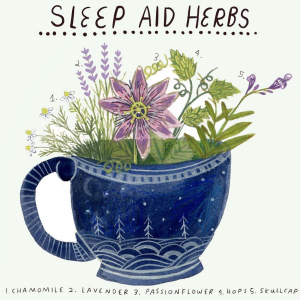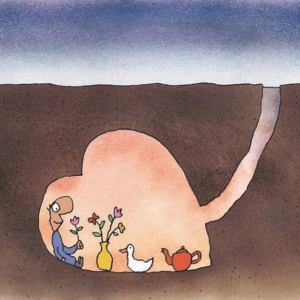Hello again,
On this special Easter weekend, I am writing from my nest to yours, in the hope of bringing you some calming herbal wisdom.
This Easter will be a different one for many of us. Plans to meet up with family and friends have been put on hold. People are learning to navigate and adjust to this time of change, and are juggling all sorts of unexpected demands – heightened emotions, anxieties, sleep troubles, kids cooped up at home, working from home, sick friends and family members, to name but a few.
So, for this brief moment in time, I encourage you to brew your favourite nest drink, and come on a little herbal reading adventure with me.
But before I begin, I would like to inform you that naturopathic care is still available to everyone at this challenging time. If you are a current patient, and you are experiencing genuine hardship, then please don’t hesitate to reach out. Feel free to send me an email, or leave a message with reception, and I will be in touch.
Adaptogens, tonics and nervous restoratives
Writing this feels like I am back in herbal medicine lectures at uni (or in a Herbology class at Hogwarts!)
Here is a brief lesson in herbal medicine, focusing on herbs that help to revitalise you and improve your response to stress. These herbs are much needed at the moment, as they provide nourishment, support, and a big herbal hug. Thank goodness we don’t have to keep ourselves socially-distant from herbs!
First up are the adaptogens. To quote the legendary English herbalist, Simon Mills, an adaptogen “literally means a remedy that helps to improve adaptability. This is a term that has been applied to remedies that appear to help maintain an adequate “stress response” as defined by the physiologist Hans Selye.”
Next up are the tonics. These are remedies that restore tone to various body systems. They are seen as nourishing, supportive and restorative. Nervous restoratives are particularly useful during times of stress, anxiety, depression, fatigue and debility. They gently restore energy, and build up strength.

A special selection of herbs
Herbalists all over the world have access to a wide array of adaptogens, tonics and nervous restoratives.
It was challenging choosing which herbs to profile, as I have so many favourites. Here are a few of them:
Withania (Withania somnifera)
Withania, also known as winter cherry and ashwaganda, is one of the most revered plants in traditional Ayurvedic medicine in India. It is a wonderfully nourishing herb, hence its application as a tonic and adaptogen. It is an ideal winter herb as it assists in recovery of illness and is very helpful during convalescence. Herbalists dispense withania to help nourish the adrenal glands thereby helping people cope with stress. Withania helps to improve sleep quality, improve concentration and memory, and is gentle enough to support development and growth in children. A true herbal gem!
Skullcap (Scutellaria lateriflora)
Skullcap may be beneficial for nervous tension due to chronic stress, illness, fatigue or exhaustion.
According to the great herbalist, Michael Moore, skullcap is “a sure treatment for almost any nervous system malfunction of a mild or chronic nature, from insomnia to fear to nervous or sick headaches, and as a basic palliative-restorative when pasturing out from stress”. Pasturing out from stress – what a beautiful description, and so appropriate for current times.
Oats (Avena sativa)
Simon Mills describes oats as being “a sure and effective restorative to the nervous system…(they can be applied in) all states of debility (as well as) depression, shingles, and other types of herpes infections.” I often call upon tincture of oats for people experiencing tiredness and exhaustion, as well as anxiety, depression and to aid recovery from shingles.
Oats are a very grounding plant – they help to rebuild, nourish and restore. They are warming and sweet with a slightly bitter flavour. I eat oats for breakfast in the winter time (a throwback to my Scottish heritage!). They are especially delicious when soaked overnight and then cooked in the morning, the old fashioned way, in a saucepan. As opposed to the cringe worthy plastic bag microwave versions…don’t get me started! My ancestors would be turning in their graves! I also add some grated ginger and cinnamon to my oats, as well as some yoghurt, and stewed fruit such as apple or pear.
I would love to hear about your favourite way of preparing oats….you can leave a comment at the end of this post.
Oats are native to Northern Europe where they have been grown since classical times as a staple food, especially in Scotland. Oats also grow well here in Australia. They can be used externally to treat inflamed and itchy skin, and are excellent for soothing ezcema. An oat face mask is a wonderful and cost effective way to soften and soothe your skin. Oats also help to clear cholesterol from the digestive tract and arteries.
You may be aware that oats contain gluten so they are best avoided if you are intolerant to gluten.
Lastly, oats are rich in minerals zinc, calcium, iron, magnesium. They are one of the richest foods sources of silicon and help to restore strength to connective tissue, skin, hair and nails. Oats are a true example of food as medicine.
Lavender (Lavandula officinalis)
The delightful lavandula officinalis is well regarded as a tonic to the nervous system. Research indicates that lavender displays anti-depressant, anti-anxiety and mood enhancing activity. It’s relaxing smell is derived from volatile oils including linalool, geraniol and linalyl acetate. Historically lavender can be traced back to ancient Egypt where is was used for embalming. And in ancient Rome soldiers carried lavender to assist with dressing war wounds. Lavender was a true friend of mine during my naturopathic studies, helping me to relax, wind down and get a good nights sleep. In fact I still pop some lavender oil on my pillow each night. This is also a great way to help children to enter the sleepy zone!
St John’s wort (Hypericum perforatum)
The last herb for today is hypericum, which has been used for centuries, and is well known for treating anxiety and depression. It has a strong affinity with the sun and its constituents become more potent in temperatures above 30 degrees. Australian hypericum tends to be more robust than its European relations. The flower is a beautiful yellow colour, like the sun, so it is easy to see how this wonderful herb helps to bring back the sunshine and vitality into a tired and worn nervous system. It assists with acute nerve pain such as sciatica and tooth pain. Hypericum is also an excellent remedy for treating viruses such as herpes, as well as for post viral fatigue. Best prescribed by a trained herbalist, St John’s Wort can play an important role in treating many modern day afflictions.

A few more snippets
Hopefully this brief moment of herbal “covid-19” escapism has helped you to relax and enjoy some quiet reading time.
For a good laugh, have a look at this: funny video !
And for all you nature lovers, check out: https://www.abc.net.au/classic/events/a-weekend-in-nature-with-abc-classic/12126016
I will sign off now with this apt quote:
“In times of crisis, the natural world is a source of both joy and solace. The natural world produces the comfort that can come from nothing else.”
Sir David Attenborough (The Big Issue UK)
Wishing you a reflective, nature filled weekend, with some uplifting laughs included,
Gabriella xo
References:
Wood, Matthew: The earthwise herbal : A complete guide to new world medicinal plants
Mills, Simon: The complete guide to modern herbalism
Bone, Kerry and Mills, Simon: Principles and practice of phytotherapy
Instagram: https://www.instagram.com/madison.safer/
Instagram: https://www.instagram.com/leunigstudio/
Subscribe to receive updates on more articles.
[contact-form-7 id="48" title="Subscribe"]